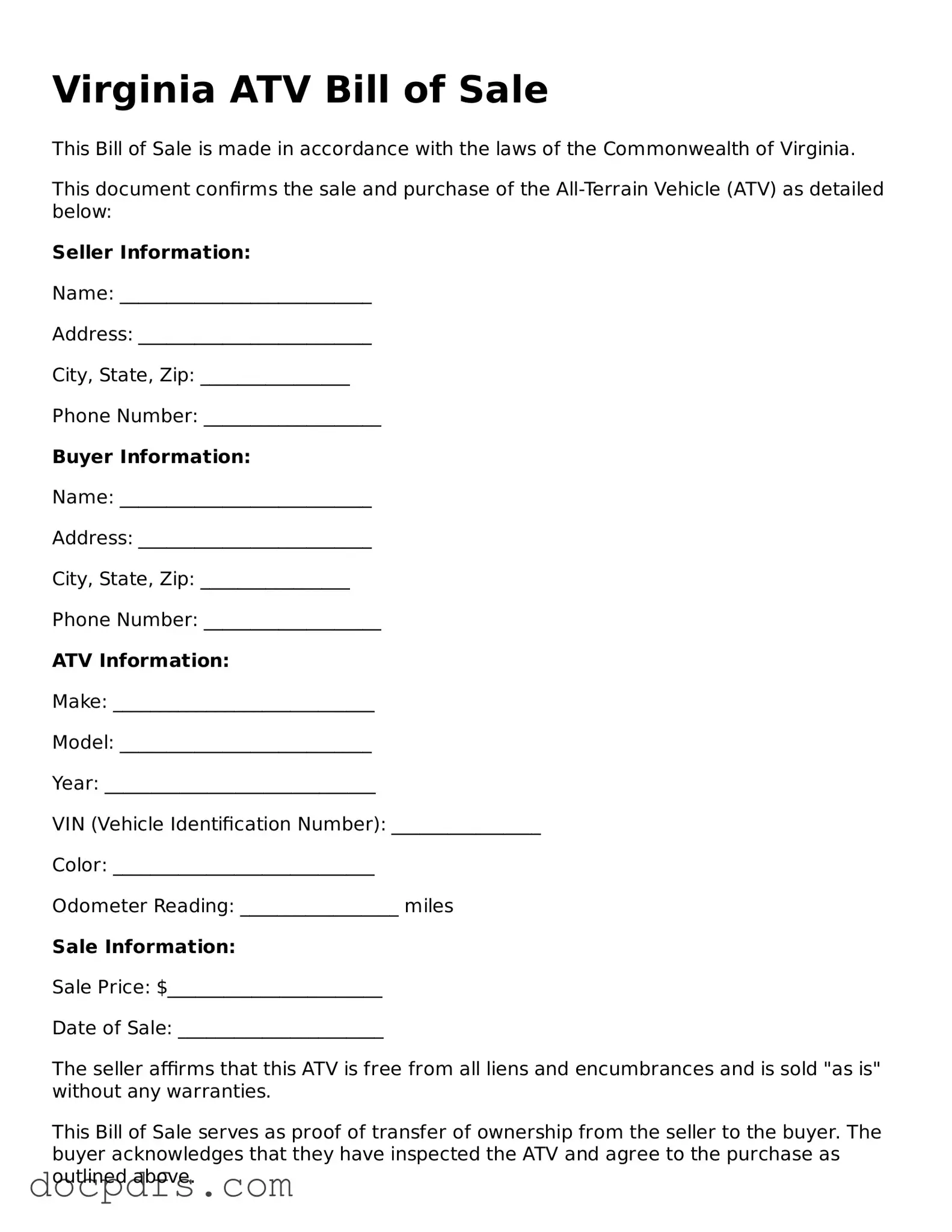Free Virginia ATV Bill of Sale Form
The Virginia ATV Bill of Sale form is a legal document that records the transfer of ownership of an all-terrain vehicle (ATV) from one party to another. This form serves as proof of the sale and includes essential details about the ATV, the buyer, and the seller. Proper completion of this form ensures that both parties have a clear understanding of the transaction and protects their rights.
Open ATV Bill of Sale Editor Now

Free Virginia ATV Bill of Sale Form
Open ATV Bill of Sale Editor Now

Open ATV Bill of Sale Editor Now
or
⇓ ATV Bill of Sale
Finish this form the fast way
Complete ATV Bill of Sale online with a smooth editing experience.